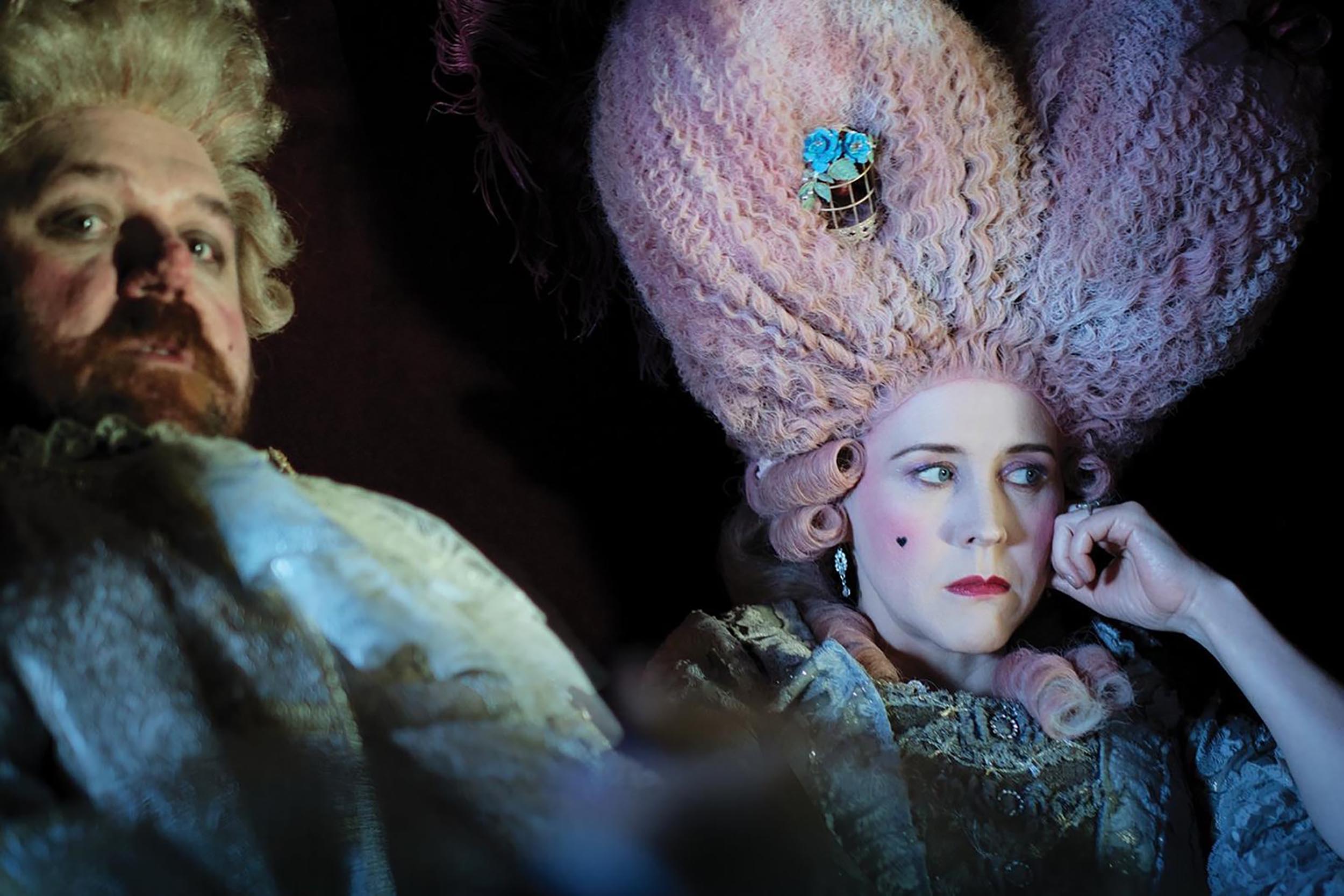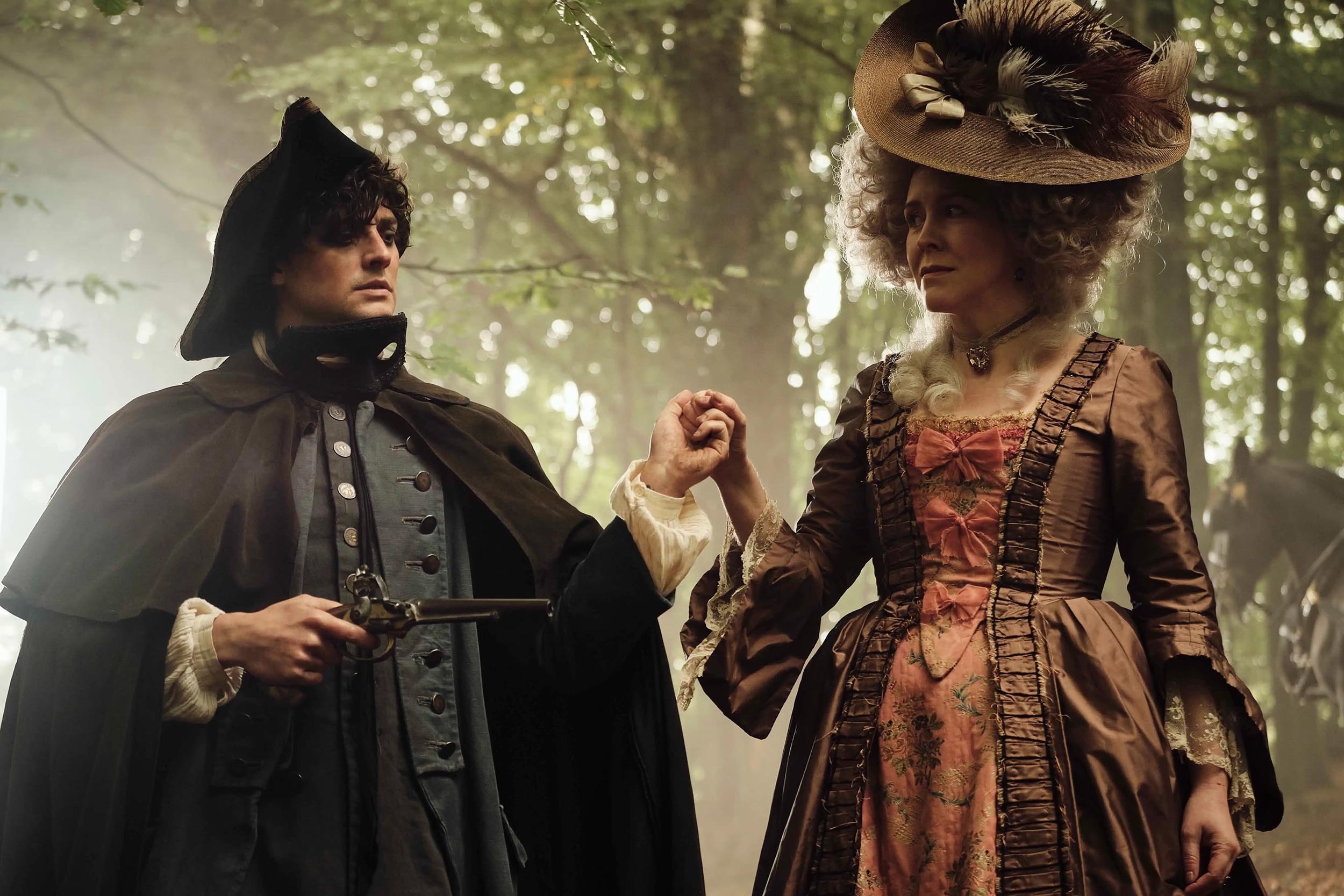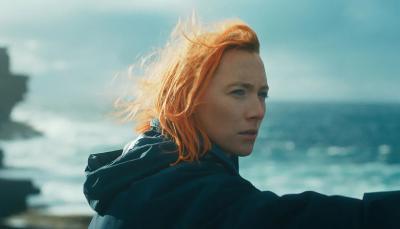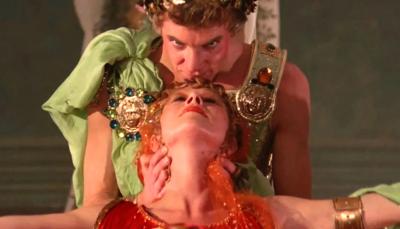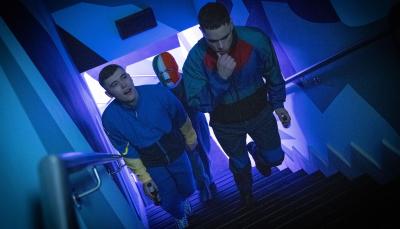'Timestalker’s Inspired Comedy Is a Thoughtful Revision of Time-Hopping Romance
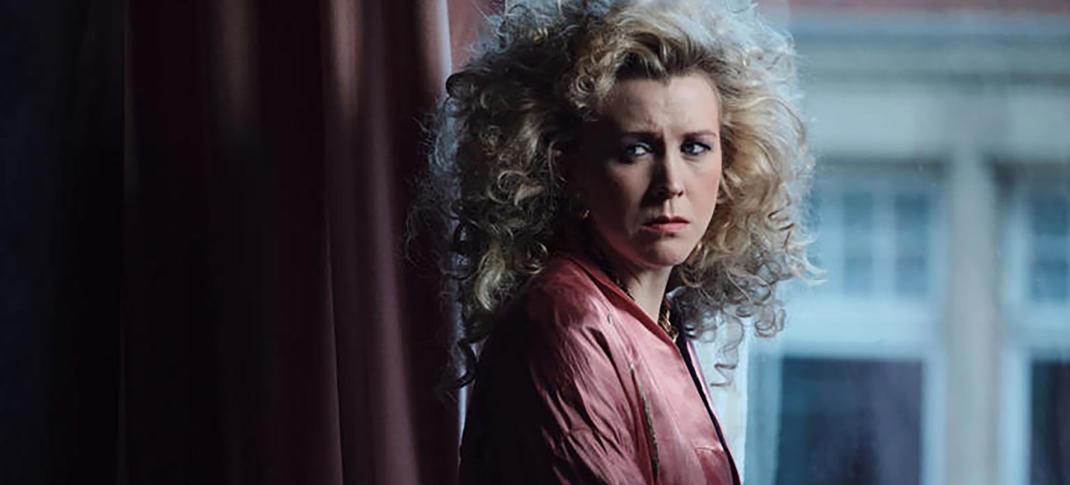
Alice Lowe as Agnes in the 1980s timeline of 'Timestalker'
Popcorn Films/Hanway Films
For a while, Timestalker is about as romantic as you can make a film with the word “stalker” in its title. Charting an odyssey of one-sided infatuation, Timestalker comes from deadpan royalty Alice Lowe, who has been involved in a good dozen British comedy classics this millennium. Lowe has worked with Edgar Wright, Ben Wheatley, Peaky Blinders creator Steven Knight, Paddington director Paul King, lent her West Midlands comedic chops to Garth Marenghi’s Darkplace, Lockwood & Co, The Mighty Boosh, Horrible Histories, Black Books, Black Mirror, Flowers, Sherlock, and has taken on senior creative duties for modern indie genre fare like Prevenge and Sightseers.
Those last two films came out eight and 12 years ago, respectively; her sophomore effort as director, Timestalker, isn’t just her most ambitious project yet; it’s long overdue. Lowe is a singular British talent, which shines through in Timestalker’s moments of inspired comedy and thoughtful revision of time-hopping romance. However, this also means the film she writes, directs, and stars in should probably have a greater sense of energy and command of craft.
Crossing Virginia Woolf’s Orlando with the recent Oscar-winning Everything Everywhere All at Once, Timestalker focuses on Agnes (Lowe), a Scottish Reformation-era peasant who falls for a heretic preacher (Aneurin Barnard) just before she is accidentally cleaved in the head and wakes up in 1790s England, where she’s the kept lady of a brutish Georgian land-owning husband.
This will be the structure of the film: in every time period Agnes is reborn in, she’s gripped by a dissatisfaction that can only be articulated through how keenly she yearns for the different indifferent men played by Barnard – a preacher, a highwayman, a New Romantic pop star. Barnard has the kind of detached, dreamboat smarminess necessary to fall for from afar but always comes across as an asshole whenever we get up close.
As Agnes ventures further through time, nearing modern day, the unhealthiness of her obsession becomes more evident, or at least easier to understand how thoroughly un-liberatory her love is for a woman stuck in an unfulfilling time. Lowe is a funny performer, but her near-constant pouty expression – adorned with various period-accurate hair and make-up – is how Timestalker’s pathos is felt. Even when the film steers away from its linear time-hopping structure towards the endpoint of Agnes’ battle with self-determination (an unoriginal but effective thematic conclusion), it’s Lowe’s anxious and open performance that lands the film’s sweeping ideas – heavily bolstered by Toydrum’s dreamy, pulsating score.
Even though the base elements of Timestalker’s function as a slight but charming look at hurting yourself through cosmic attraction, it’s all couched in a lacking comedy vehicle that desperately needs the touch of a stronger filmmaker. Timestalker treats its genre and period trappings with the stultifying deadpan minimalism that can be thoughtfully deployed – look to Stanley Kubrick’s Barry Lyndon and Peter Greenaway’s The Draughtsman's Contract to see how we eventually got Yorgos Lanthimos’ The Favourite – but more often than not, attempts at imitation slip into tedium.
You’ve seen it before – people quietly go through the trope-y motions of whatever throwback era we’re in, and then snap out of period-accurate affectations by acting very modern, chattering over each other, or saying rude words. Because the vast majority of Timestalker happens in two time periods – Georgian England and 1980 New York – the momentum of zipping through time and driving closer to a huge personal epiphany never meaningfully materializes, and glimpses into Victorian and wartime Britain are only brief skits.
This is even though the two almost self-contained storylines are engaging enough to watch: the highwayman inadvertently lures Agnes away from her monstrous, pitbull-esque husband (Nick Frost); Agnes gets roped into a delusional murder plot by her pop icon’s scheming manager (Interview with the Vampire’s Jacob Anderson in a recurring Mephistopheles-like role). But the eager supporting cast is equally stranded in mannered, subdued scenes, with only Sex Education’s Tanya Reynolds matching Lowe’s ironic and absurd sensibilities – the scenes shared by the two actresses are more arresting than any others.
We’re left with many oddball not-quite-jokes that try to lightly amuse us to fill the quiet scenes, as if enough attempts to make us chuckle will snowball into belly laughs. It’s not all misses – Lowe’s delivery can sometimes turn bickering into a comedic art, and one particular music icon assassination joke is masterfully deployed – but there’s so little tension throughout the film that the absence of whip-smart humor makes the 89-minute fantasy feel lethargic. Timestalker has big ideas on its plate but doesn’t seem to have successfully modified its vision when it became clear Lowe is not a visual filmmaker, and the stilted comedy style clashed with her expansive, transcendent ambitions.
Timestalker is playing at the Edinburgh Film Festival and will debut in theaters worldwide on Friday, October 18, 2024.

